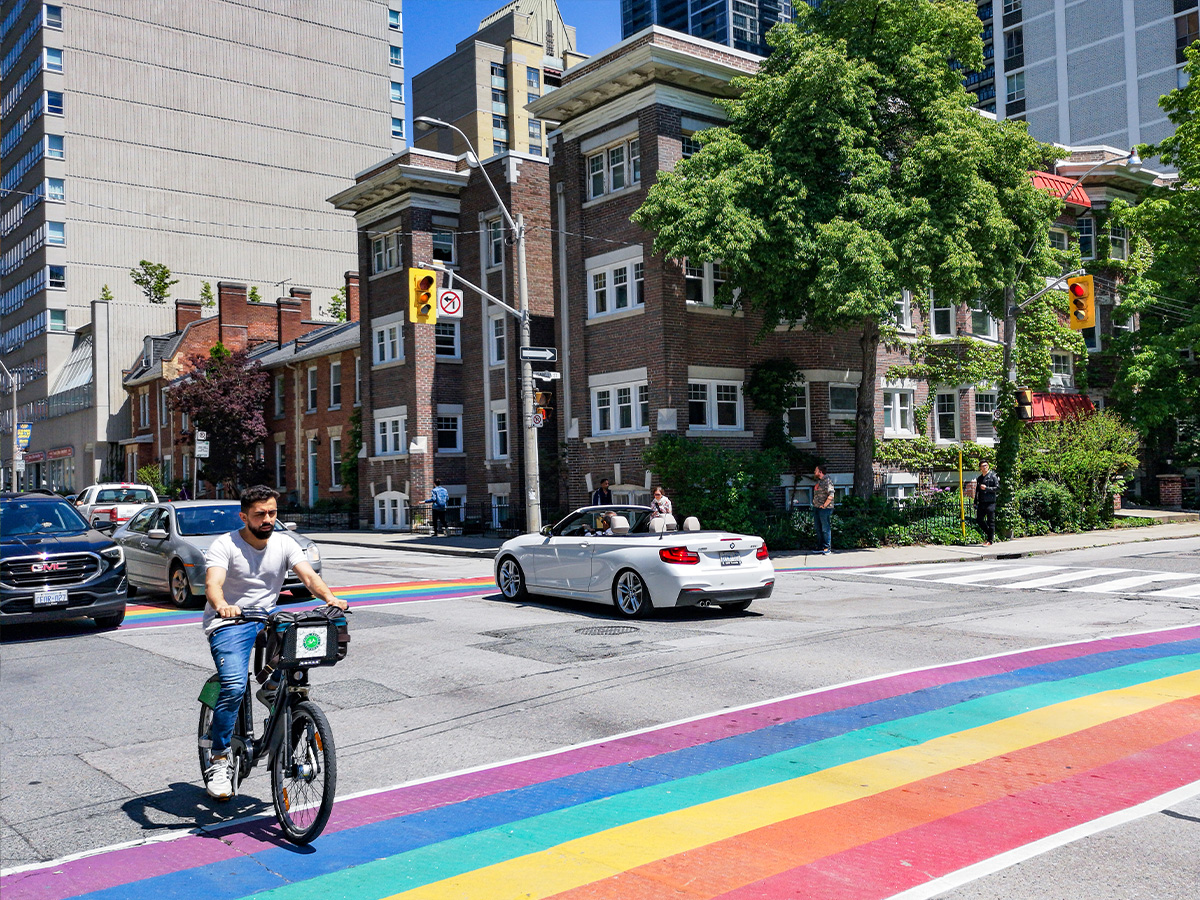Building more inclusive communities: Designing for belonging and aging in place

TMU professor Victor Perez-Amado’s research combines policy and design to promote more inclusive housing for seniors and 2SLGBTQ+ communities.
Imagine a neighbourhood that is purposefully designed to be inclusive. It welcomes everyone, accommodating a wide variety of family types and supporting aging in place. From housing to sidewalks, the design is both accessible and deliberate, aiming to create a more resilient and inclusive community.
Victor Perez-Amado, a professor at Toronto Metropolitan University's School of Urban and Regional Planning, is an architect and urban designer. His research combines policy and design to promote inclusive communities that support diverse family structures and aging in place. He also examines how these communities intersect and evolve.
“When we make housing inclusive for the 2SLGBTQ+ communities, we make housing inclusive for everyone,” he said.
Chosen families and inclusive city zoning
Many 2SLGBTQ+ people rely on chosen, intergenerational family structures and prefer to avoid care settings that may not be queer-friendly as they age, noted professor Perez-Amado. “A lot of these people face years of persecution and don’t have real, direct relationships with their biological families … For them, aging in place is a necessity.”
His research shows that 2SLGBTQ+ communities are being priced out of welcoming Toronto neighbourhoods and lack support to age in place. To help address this, he recommends updated zoning regulations and policies that support retrofitting existing homes to allow for a wider range of housing options. He also advocates for building purpose-built row housing to increase the number of units and foster communal living. Many areas are zoned only for single-detached homes, limiting the potential for retrofits or new developments with on-site health care supports. Such projects are often restricted to busy main roads, which can feel unsafe and unwelcoming for older adults.

Research shows that 2SLGBTQ+ communities are being priced out of welcoming Toronto neighbourhoods.
Supporting 2SLGBTQ+ communities and seniors
Professor Perez-Amado shared legislative recommendations tailored for 2SLGBTQ+ senior communities at the 2023 Seoul Biennale of Architecture and Urbanism. His exhibition, “Aging TOgether: Inclusive Aging-in-Place Strategies for Toronto,” addressed the questions: How long should traffic lights and crosswalk signals last to accommodate different mobility speeds? How wide should streets and sidewalks be? Can we make parks more accessible by adding features, such as water fountains, seating and shading?
His more recent research examined Toronto’s municipal processes with the aim of mapping housing availability and resources for 2SLGBTQ+ adults based on kinship and chosen family structures. It also aimed to analyze land use policies related to housing and identify housing gaps. He presented this research, co-authored by TMU Master of Planning in Urban Development alumni Sam Casola, at the Association of Collegiate Schools of Architecture’s 113th annual conference in New Orleans this past March.
Upcoming projects include a collaboration with TMU School of Urban and Regional Planning professor Samantha Biglieri and The 519, a Canadian charitable, non-profit organization. The team will hold storytelling workshops to better understand the needs of Toronto-based 2SLGBTQ+ older adults as they age. This research could help launch a small trial of professor Perez-Amado’s housing recommendations.
Through community collaborations and international and local exhibitions, professor Perez-Amado is working to create inclusive communities that support diverse family structures and aging in place, particularly for 2SLGBTQ+ adults. His work highlights the need for updated zoning laws, retrofitted homes, and purpose-built housing to make cities more accessible, affordable and welcoming for all.
Learn more about professor Perez-Amado’s international exhibitions and read his (external link, opens in new window) research publications from community/academic collaborations on his website. (external link)
Some of the research mentioned in this article is supported by the Social Sciences and Humanities Research Council (SSHRC).